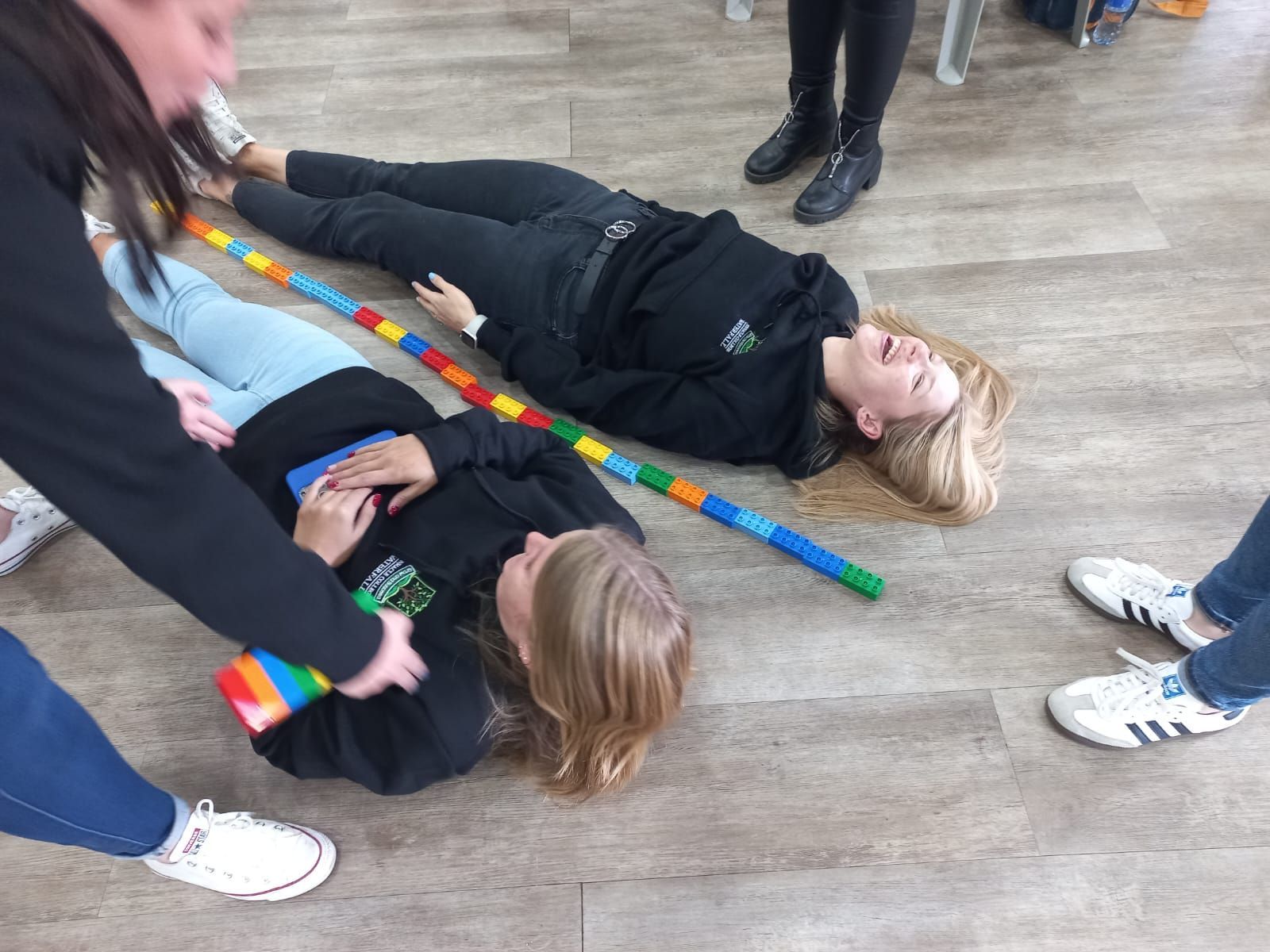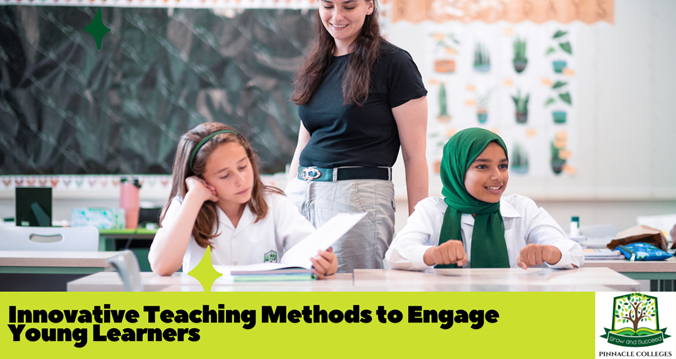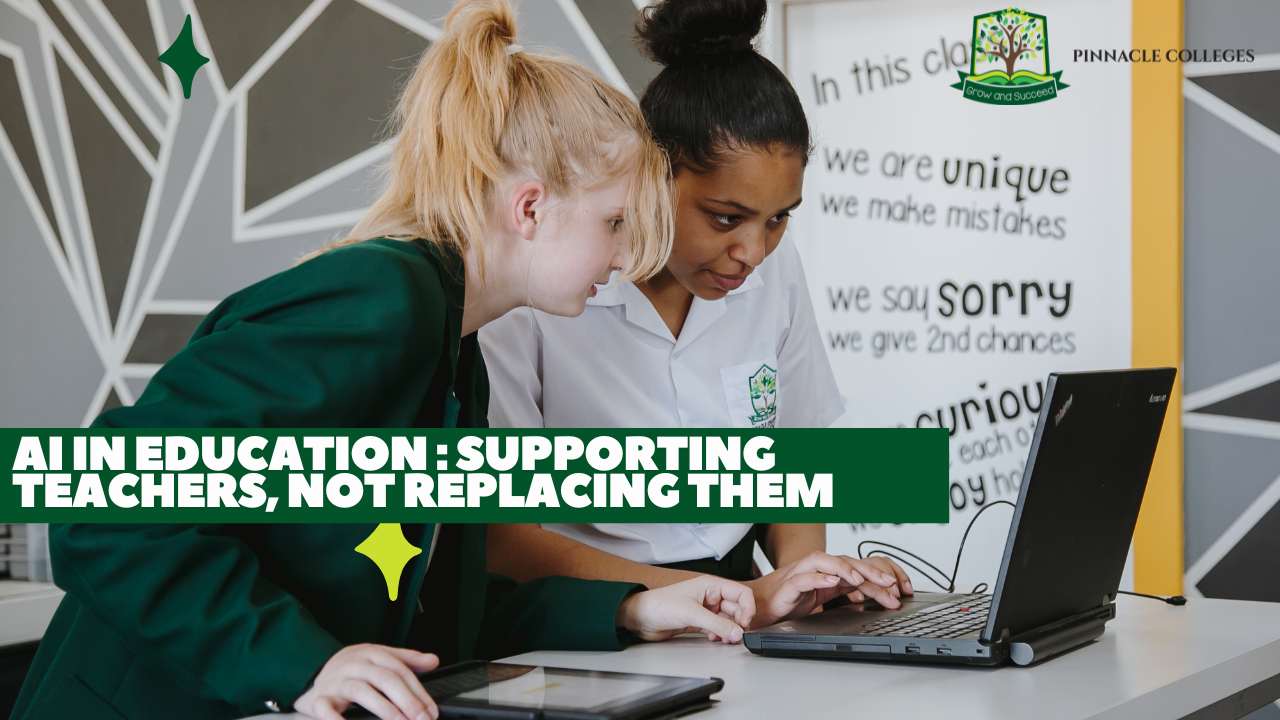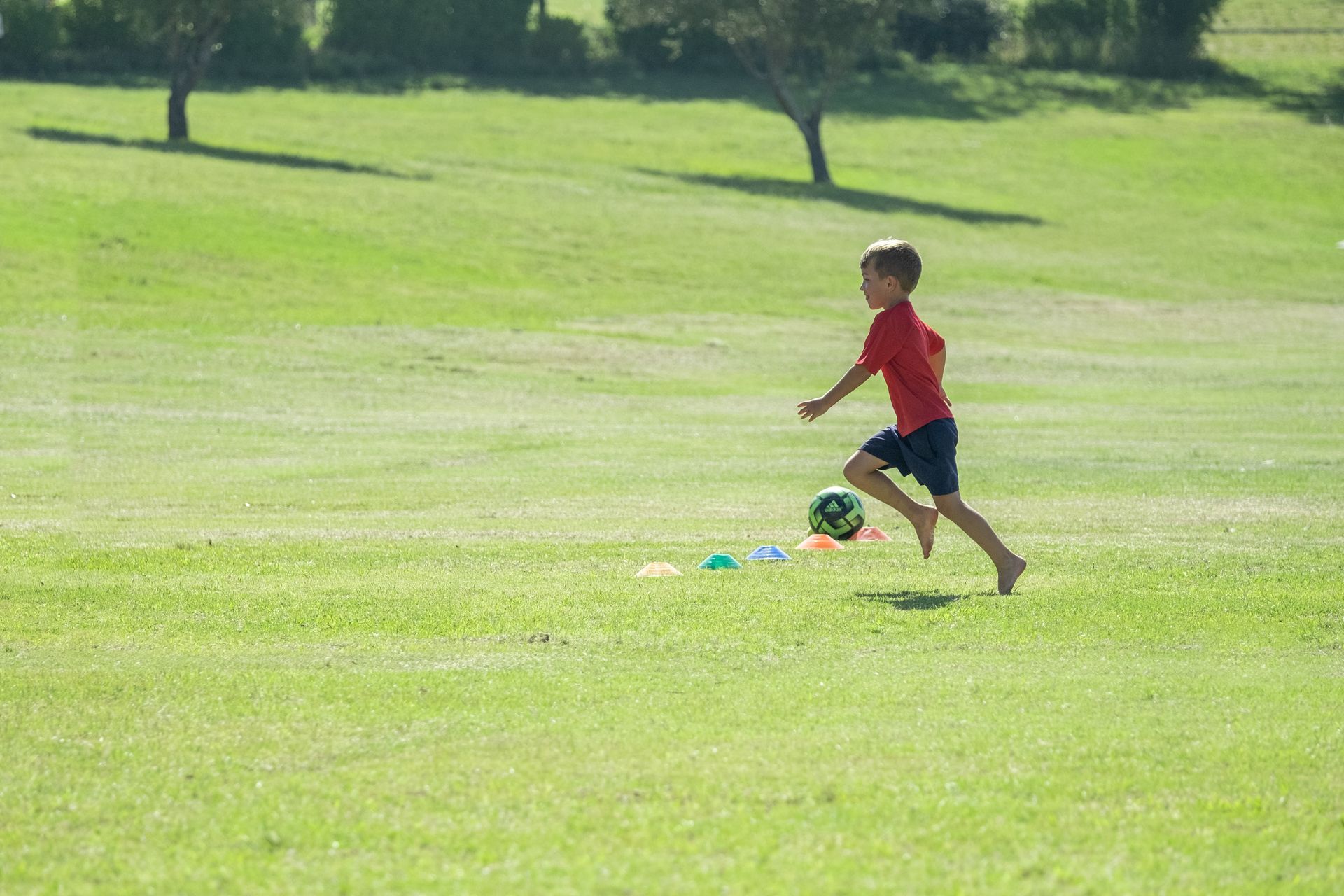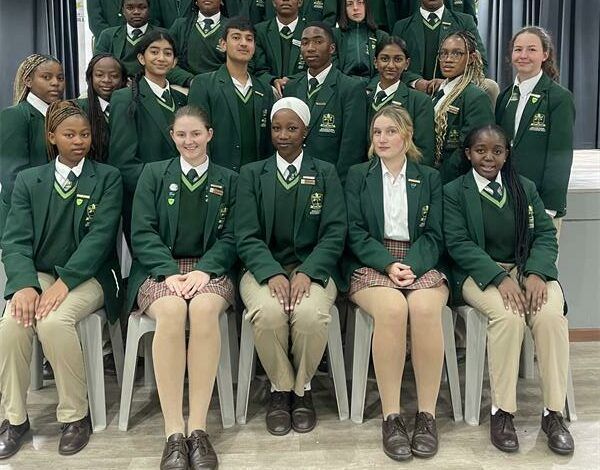IT’S NOT LOCKDOWN; IT’S OPEN YOUR EYES AND MIND!
Tracy Freemantle, High School Senior English Teacher, Pinnacle College Kyalami • April 1, 2020
Dear Parents
When I first heard “lockdown” mentioned, I imagined a spectre of doom – an apocalyptic wasteland. Yes, people have passed away and individuals have become seriously ill.
However, how we deal with any situation depends on our attitude towards life. If you are determined to remain positive and happy, you are more likely to be healthy and mentally strong.
To me, the lockdown has been a bright splash of yellow daisies in a dusty street. I have enjoyed the way in which family and friends have remained in close contact. We have cared about each other without seeing one another. The messages of support and love which have been sent around friendship groups have been inspiring and comforting. We have all received hilarious messages on Whatsapp.
I have even had phone calls from cousins in Australia, America and Ireland. It is consoling to know that other places in the world are in our situation. We are not that far apart! This lockdown has brought families closer together.
My neighbours, with whom I usually have little contact, have made a point of greeting one another across the safe divide of the road. We have expressed concern for one another and asked after each other.
Our neighbourhood has been peaceful and quiet. I have not been constantly aware of the urgency of sirens on the William Nicol. The air around me smells fresher and cleaner. The shroud of traffic emissions has lifted. I have walked around my garden with my dogs (who are pleased to have me at home) and taken the time to admire my flowers. I have even noticed and studied the bees busy on my marigolds. I have had the opportunity to connect with nature, thanks to the lockdown.
I have taken note of the birds in my trees. It would appear that there are more birds around, because people are moving around less. The usual noisy hadedahs are present, enjoying the worms after the rain. I still feed the doves in my garden every afternoon. The olive thrushes and red bishops are enjoying the Autumn sunshine. I was overwhelmed with joy to see a bird I had never seen before. It is a large, black and white bird with red markings, a curved beak and a long tail. After an extensive Google search, I identified it as a red-billed wood hoepoe.
I am grateful that I can enjoy and find wonder in my surroundings. During this time people have reminded us to count our blessings. I appreciate my home, my job and my family. I am grateful for nourishing food and the fact that Eskom has not loadshed us recently.
My nephew, who is a doctor working at one of our large hospitals, is grateful for the liquor ban. There have been fewer car accidents and hardly any violence-related incidents. Working at A and E is usually only for the strong-spirited, but it has been quiet without alcohol-fueled activity.
People have indulged in building jigsaw puzzles, crosswords and a variety of creative pursuits. I have enjoyed cooking and following intricate recipes for which I do not usually have time.
I have learned about online teaching and remote learning, which I might otherwise not have done.
I am aware that many people do not have the advantages of a spacious home and garden. Not everyone can practise social distancing. I know that I am fortunate and I don’t take anything for granted.
Keep positive and be happy about the small miracles around you. The lockdown will end. Maintain a sense of humour. Find something to laugh about every day, even if it is just Donald Trump on Twitter.
Bless you all and we’ll see you after we have all been released into our new world!
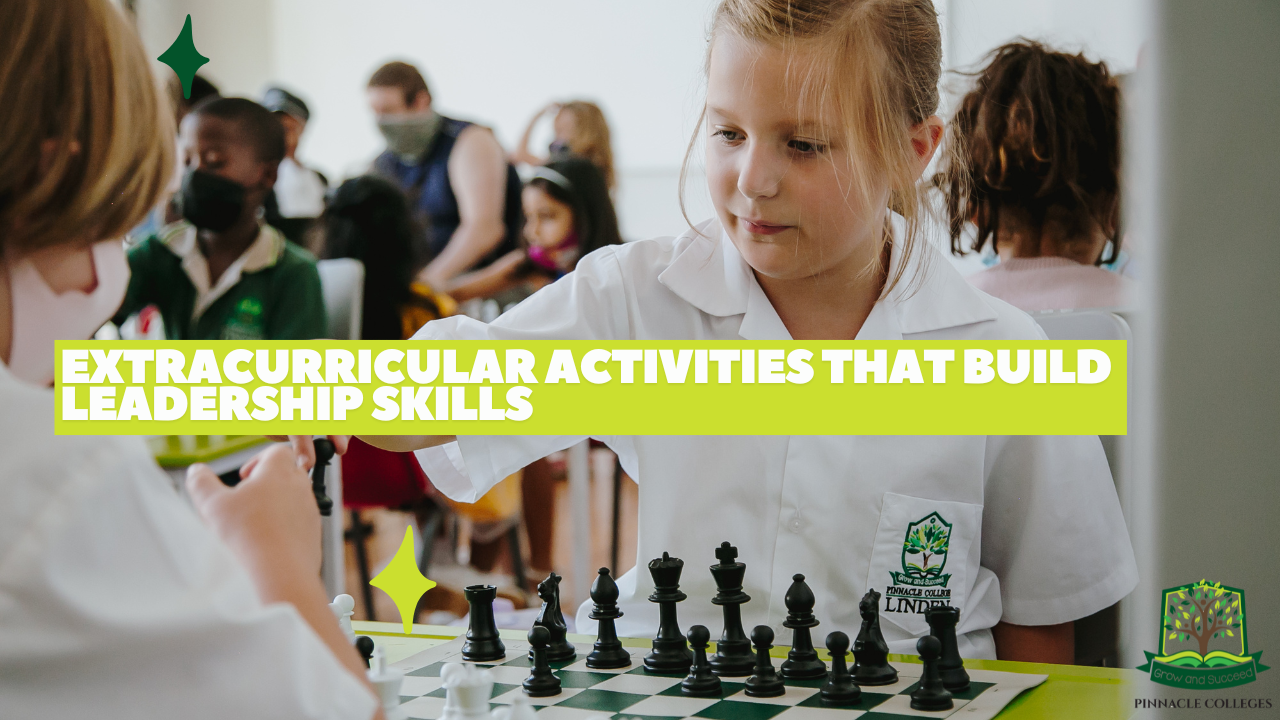
At Pinnacle Colleges, we believe that education goes beyond the classroom. As part of our commitment to nurturing well-rounded individuals, we offer a variety of extracurricular opportunities designed to develop essential leadership skills in our students. Why Leadership Matters Leadership is more than just a title—it's about initiative, responsibility, and the ability to inspire others. These qualities are vital for academic success and for thriving in life beyond school. At Pinnacle Colleges, we empower students to become confident, capable leaders through hands-on experiences and values-based education. Leadership Programs and Student Government Our schools offer structured leadership programs and student government bodies where learners can take on real responsibilities. Whether it’s organizing school events, leading assemblies, or representing their peers, students develop communication, decision-making, and teamwork skills that will serve them for years to come. Sports: Building Teamwork and Resilience Participation in sports is a cornerstone of the Pinnacle Colleges experience. Our students learn the importance of discipline, collaboration, and perseverance—key aspects of effective leadership. Whether on the soccer field, netball court, or athletics track, learners are encouraged to set goals, support their teammates, and lead by example. Cultural and Club Activities From debate clubs to arts and music, our cultural programs encourage creative thinking and problem-solving. Students have the chance to organize performances, participate in competitions, and work together on projects, all of which foster leadership and initiative in a supportive environment. Community Service: Leading with Heart At Pinnacle Colleges, we believe in the power of giving back. Our community service initiatives allow students to engage with and make a difference in their communities. Through volunteering and outreach projects, learners develop empathy, social awareness, and the confidence to lead positive change. A Holistic Approach to Leadership As part of the ADvTECH Group, Pinnacle Colleges is committed to holistic education. We balance academic excellence with a strong focus on personal growth, ensuring that every student is equipped with the knowledge, skills, and values needed to succeed. Our approach to extracurricular activities reflects this philosophy—preparing students not just for exams, but for life. Ready to discover your leadership potential? Explore the wide range of extracurricular opportunities at Pinnacle Colleges and become the leader you are meant to be!

OCTOBER 2024 In South Africa, the ability to read for meaning is a critical skill that remains elusive for many children. According to the Reading Panel 2030 report, a staggering 78% of Grade 4 learners cannot read for meaning in any language. This alarming statistic underscores the urgent need to foster a love of reading among students to ensure their academic success and personal development. “Reading is foundational to learning and personal growth. It enhances vocabulary, improves comprehension, and stimulates imagination. Moreover, reading is linked to better academic performance across all subjects. For South Africa, where educational disparities are significant, promoting reading can be a powerful tool to bridge the gap and empower future generations,” says Kassandra Strydom, Academic Advisor: Foundation Phase at ADvTECH , Africa’s leading private education provider. Strydom emphasises that in a world dominated by social media and mobile devices, keeping a child's interest in reading can be challenging. However, she underscores that this is a vital responsibility for parents. “By integrating reading into daily life from a young age, and making it an enjoyable activity, parents can help their children develop a lifelong love for reading, thereby improving their prospects of personal and academic achievement,” she says. Strydom notes that the findings of the Reading Panel 2030 report highlight the critical need for efforts to ensure that all children in South Africa can read for meaning by 2030. And while the Department of Education committed to addressing challenges identified in the report at a recent session where Basic Education Minister Siviwe Gwarube delivered the keynote address, the mammoth task could not be left to educators alone, she said. “Schools and teachers play an important role in teaching students how to read, but few are equipped to instil a genuine love for reading by the time children begin formal education. This essential passion must be nurtured at home to create a supportive environment where students can thrive once they master their ABCs.” Strydom says parents play a pivotal role in nurturing a child’s love for reading, and says it can be done by: CREATING A READING-FRIENDLY ENVIRONMENT & LEADING BY EXAMPLE Second-hand books are often very affordable, and libraries are free, making it easy for families to fill their homes with a diverse selection that caters to their child's interests and reading level. Choosing books together can be a fun and exciting activity, providing valuable parent-child bonding time. Once the books have been selected, engaging in paired or shared reading experiences can enhance this connection. Creating opportunities to read together in a relaxed and intimate setting—whether snuggled on the couch or curled up in bed—makes reading feel special. This not only fosters a love for reading but also connects the activity to positive emotions and quality time spent together. By modelling positive reading habits and setting aside dedicated reading time each day, parents can help cultivate a lifelong passion for books in their children. USING TECHNOLOGY WISELY Excessive screen time can negatively impact children’s development, prompting many schools to limit mobile phone usage to create more focused learning environments. To balance screen time at home, families can implement "reading timeouts" that benefit both child and parent. While there are numerous reading apps and platforms that can make reading engaging, it’s important to choose those that offer personal learning pathways, allowing children to explore content beyond just reading. These apps can foster deeper engagement with reading material by connecting it to real-world situations and encouraging critical thinking. However, it’s essential to also incorporate non-screen reading to ensure children develop a well-rounded love for literature alongside their digital experiences. MAKING READING AN INTERACTIVE EXPERIENCE When fostering a love for reading, it's important to ensure that the experience is interactive. Encourage children to engage with books before diving into the text by taking time for ‘picture walks’, where they can flip through pages and explore the illustrations. This approach helps minimise distractions and prepares them for a more focused reading experience. Consider using the "5 W" principle—asking who, what, when, where, and why questions about the book—to spark discussion and curiosity. Before reading, ask children what they think the story might be about, and always include the follow-up question, "How do you know that?" This encourages them to articulate their thoughts and develops metacognition—thinking about their thinking—making the reading experience richer and more meaningful. ENDS


